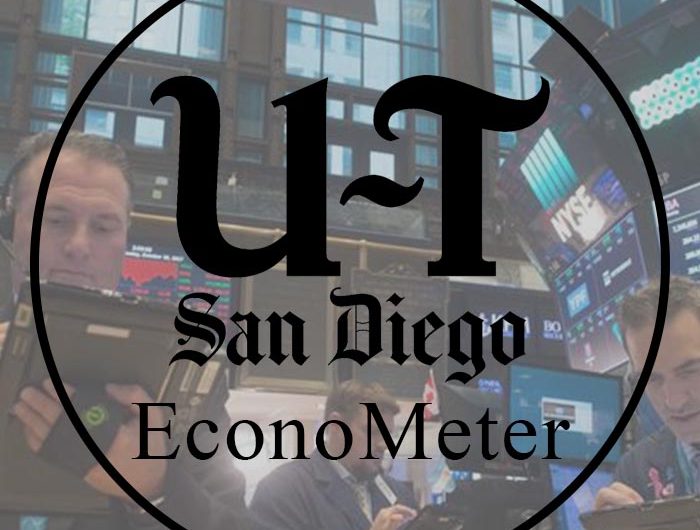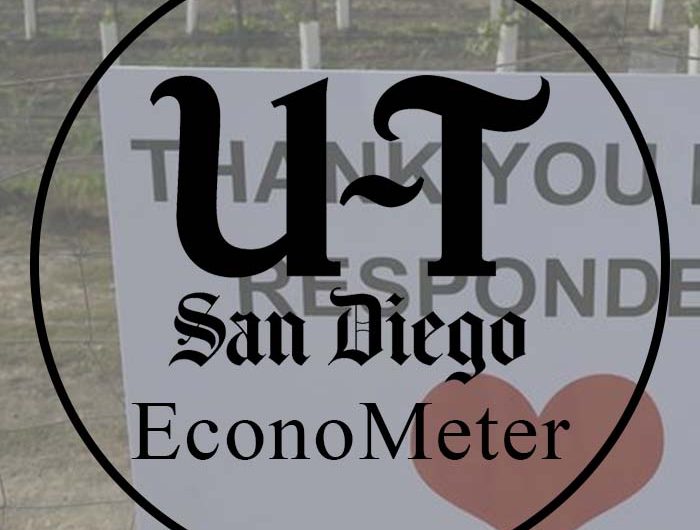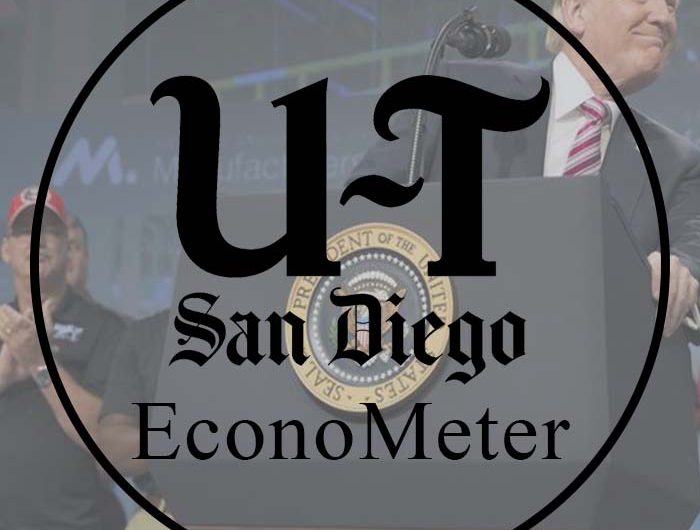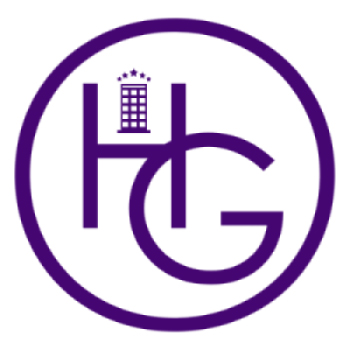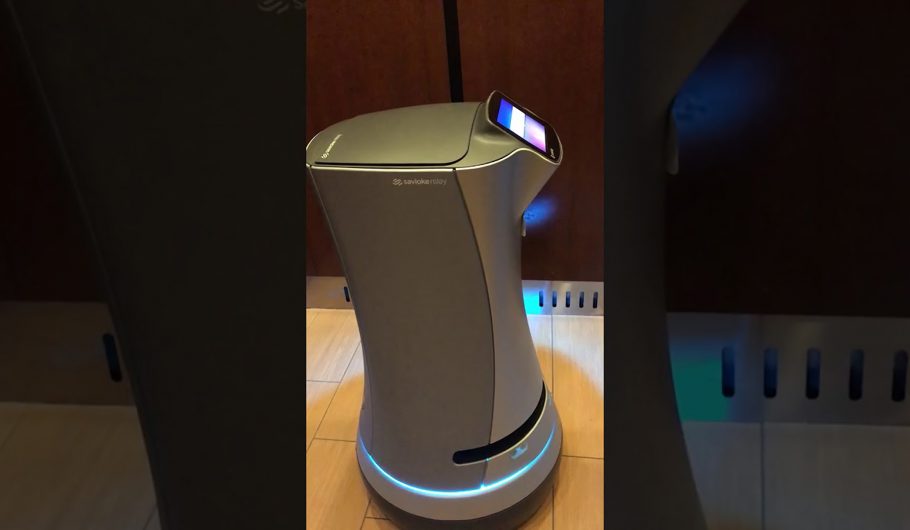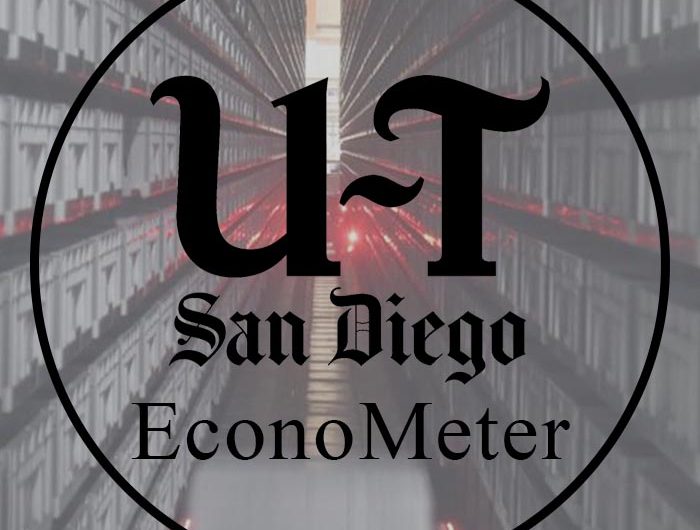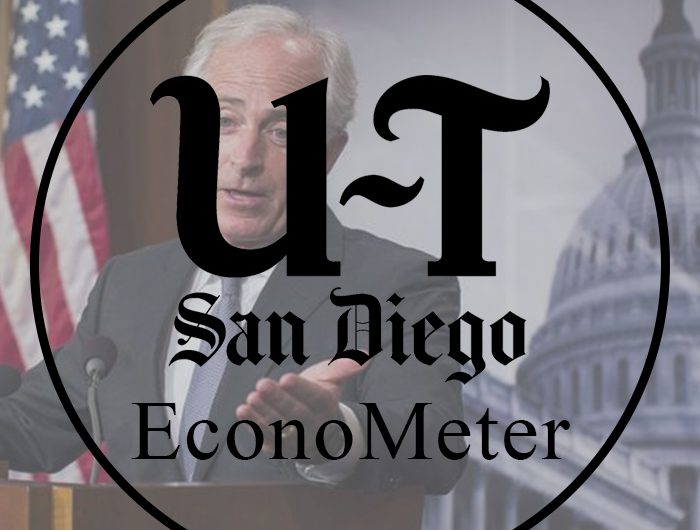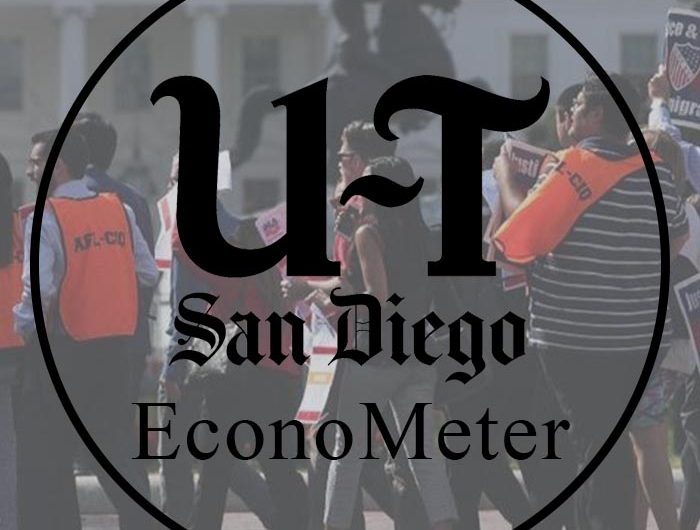Stock market heading for ‘correction’? EconoMeter panel says yes — and no
Question: Will there be a stock pullback by year’s end?
Bobs Answer: NO
The current economic environment is solid despite this cycle’s age of 100 months of positive growth. Strong consumer confidence and employment levels, coupled with stable oil prices and low interest rates bode well for the stock market.
I believe a correction would most likely be caused by an external event having nothing to do with the economy.
A tax reform package could even boost stock prices higher.
To read the other EconoMeter panelists’ answers to this weeks question click here.
Wine country fires: An economic hit to the state?

This weeks Question: Will the California economy suffer from the devastating fires in wine country?
Bob’s Answer: Yes
Wildfires disrupt the lives of workers, employers and families and might cause instability in local labor markets, however, the economy will benefit from insurance and federal and state spending. Statewide employment and wages may increase in some sectors during wildfires, reducing impacts of employment disruptions and fire suppression costs. The real problems are with water quality, wildlife habitat, air pollution and more. That is where the costs are often underestimated by a wide margin.
To read other EconoMeter answers click here.
Trump’s tax plan: A boost to the economy?

Question: Would President Trump’s tax plan boost the economy?
Bob’s Answer: YES
While there are some changes that must be made to the draft, individual tax rates would be simplified and corporations would see their top tax rate cut from 35 percent to 20 percent, allowing for more investment. Repatriation of funds will act as a stimulus as billions of dollars are sitting idle offshore.
This enables the economy to grow closer to 3 percent versus below 2 percent during most of this decade.
For the full article by Roger Showley click here.
A robot tax: An answer to automation and job loss?

Question: Should companies that automate, using robots for example, have an additional tax levied to cover training and severance costs?
Bobs Answer: No
An additional tax on robots would be detrimental to businesses and impede innovation. Jobs most at risk from automation include those that rely on mundane tasks. Robots are less likely to replace humans in roles that require critical thinking and creativity. A tax on robots, over and above taxes that are already in place, is absurd and would stop progress in its tracks. What’s next—taxing smart appliances because they utilize artificial intelligence?
For the full article by click here.
Competitive Advantage 2018 – The World Has Changed
The classic model of competitive advantage is Michael Porter’s five forces shown below. This is still a useful model for the hotel industry. The most interesting part of this in 2017 is the “substitute” portion of the grid–this is what Airbnb is all about and they will have had a huge impact on our industry by the time most people wake up to it. According to Porter, “the existence of products outside of the realm of the common product boundaries increases the propensity of customers to switch to alternatives.
”

Airbnb has become a powerful force in the hotel industry and as a reaction, municipalities are attempting to legislate its potential. But the truth is, down the road a bit, Airbnb will likely become an online travel agency (OTA). Why? Because they can charge lots more than three percent and will eventually become tired of dealing with “one-off” hosts and myriad cities.
As we see it, this sharing economy is a new reality that hoteliers are still grasping to embrace. Is Airbnb a complement to hotels or is it a threat to the traditional hotel model? If I am correct and they become an OTA, that would serve the industry well as they would not really compete and help drive down the cost of commissions. Given the penchant of millennials to chart their own path and their increasing share of the traveling public, expect to see Airbnb, Uber, and other “sharing economy” players continue to dominate the conversation and hoteliers continuing to focus on gaining a competitive advantage.
At the end of the day, the key is to watch this trend and others like metasearch sites Trivago and Kayak so that your team can strategize on income opportunities and value optimization. Most importantly, it is time to shift market share from indirect bookings to direct bookings.
Technology as a Competitive Advantage
Competitive advantage consists of two components. The first is the distance between your hotel offerings and your nearest competitors or the competitive advantage gap (“GAP” for short). The second is “CAP” or competitive advantage period. In other words, if a hotel company has superior products and significant barriers to entry it has both a competitive gap (product differentiation) and a competitive cap (time lag for competitor entry).
What immediate and practical steps can we utilize to optimize our competitive advantage?
Differentiate from the competition. This may include re-evaluating your distribution processes and channels. The large amount of demographic and psychographic information available about the make-up of today’s traveler requires analytical skills and creativity to correctly respond to the marketplace.
Today, as Kalibri Labs, arguably the authority on this subject says, “owners expect management companies to generate direct booking…this makes sense because management fees are typically computed on the basis of the total revenue and not on the net revenue (revenue minus transaction costs).” When the direct bookings then result in repeat business, costs are reduced rather dramatically and even owners are happy!
Many hotels do not have qualified staff to develop these direct bookings—so which is better? Paying an OTA or developing a team? For a quick fix, opt for the OTAs. For the long haul, work on your team to increase your profits and use OTAs to complement your direct bookings to obtain a healthy mix of business. And take advantage of all the tools OTAs offer including booking foreign independent travel (FIT).
According to Screen Pilot, the firm we rely on for outside service in this area, these three tasks will help you:
- Refresh your PPC Strategy by doing more than just bidding on keywords that persuade people to click your ad. Tailor keyword combinations to clearly outline the benefits of booking direct, and include direct links to the specific rates displayed.
- Polish your phrasing and clarify benefits by experimenting with phrasing and making sure changes are made as needed.
- Provide social proof by encouraging guests to share reviews via their social accounts and consider featuring the best on the brand’s social channels.
It is time to draft your 2018 business plans and budgets. Make sure you have a thorough understanding of the market and your competitive advantage in the market—then get those direct bookings to get more dollars to the bottom line. Will you be ready?
Robert A. Rauch, CHA
EconoMeter ponders whether a higher deficit is OK with a tax cut?

Question: Will it be acceptable to propose tax changes that increase the federal deficit?
Bobs Answer: YES
Tax reform must be enacted to increase capital formation; any budget deficit increase will only be temporary. We need to generate the kind of economic growth necessary to provide the federal treasury with enough revenue to pay down our debt. The net tax changes may increase the budget deficit in the short term but will increase growth and incomes in the long term. Gross domestic product growth of 3 to 4 percent per annum is achievable.
For the full article by click here.
End the ‘dreamers’ program and hurt the economy?

Question: Will the economy suffer if the DACA (Deferred Action for Childhood Arrivals) program is not renewed?
Bob’s Answer: Yes
The average DACA recipient is 22 years old, employed, and earns about $17 an hour. The majority are students and 17 percent are pursuing an advanced degree.
By contrast, most recipients of H-1B visas are between 25 and 34 and hold either a bachelor’s degree or a master’s degree.
DACA recipients are more closely linked economically to H-1B visa recipients than other illegal immigrants.
President Trump will not deport them. This is just politics.





